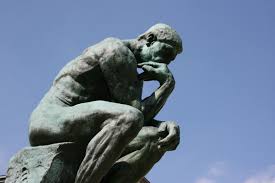There was a time when coming home tired was a good thing. You’d roll your shoulders, peel off your gloves, and the ache in your hands said you’d done something that mattered. It wasn’t misery — it was proof. That kind of exhaustion has a smell, a rhythm, and a peace to it.
These days, most people end their workday tired but not satisfied. They’re mentally frayed, screen-burned, and one email away from snapping. Yet nothing they touched is tangible. Their inbox is empty, their heart is too, and they wonder why they don’t feel like they did anything.
We used to measure a day’s worth by what was built, fixed, or moved. Fence mended, truck tuned, ditch dug — something in the world changed because you showed up. The soreness that followed wasn’t punishment; it was a quiet medal pinned under the skin.
Now, effort has become a bug to be fixed. The market sells us convenience like it’s compassion. Every task made “easier” chips away at our sense of value until the only thing we have left to be proud of is how fast we can tap “Buy Now.” We’ve eliminated friction, but friction was where growth lived.
When I was a kid, I’d watch men climb out of pickups at the end of the day — faces like leather, hands cracked but steady. Nobody needed to tell them they were enough; they already knew. The job had told them. They’d earned their worth in calluses, not compliments.
Somewhere between air conditioning and self-checkout, we lost that. We started calling struggle “inefficiency.” But self-esteem and good exhaustion come from the same place — resistance. A shovel meets dirt, a wrench meets rust, and somewhere in that stubborn meeting is where people remember what they’re capable of.
It’s not just about nostalgia; it’s biology. Our bodies were built to move, lift, and problem-solve in three dimensions. When we don’t, our energy turns inward and ferments into anxiety. That’s why you can work a twelve-hour shift behind a desk and still feel restless at midnight — your muscles never got the memo that the day’s over.
There’s also something deeply moral about physical labor — not in the saintly sense, but in the grounding sense. Manual effort keeps you honest. If a project fails, you can’t blame the algorithm or the update; you tighten the bolt, you start over, and you learn something about humility along the way.
People talk about self-esteem as though it’s something you can hand out in a workshop or build with affirmations. But the truth is, confidence comes from competence — and competence comes from doing. You can’t think your way into believing in yourself; you have to prove it to yourself through action. That proof used to come daily.
It doesn’t even have to be your job. Splitting wood, changing your own oil, building a shelf that’s slightly crooked but still stands — it all counts. The work doesn’t have to be perfect; it just has to be real. The smallest act of creation still whispers, you can do this.
Maybe that’s what we’re missing as a culture — not purpose, not money, but that feeling of earned fatigue. The kind that comes from effort you can point to. The kind that lets you sleep deep because your body and conscience both know you pulled your weight today.
There’s an old saying among carpenters: “If you measure twice, you only cry once.” I think life’s the same way. The slow, careful way hurts less in the long run. The quick and easy path may save time, but it robs you of the small victories that make a person feel useful, strong, and whole.
So maybe it’s time we start celebrating tired again — not the drained, over-stimulated kind, but the honest kind. The kind that hums in your bones while you sit on the porch and watch the day cool off. The kind that says, You did something that mattered.
We don’t need a new app for that. Just a little dirt under the nails.

